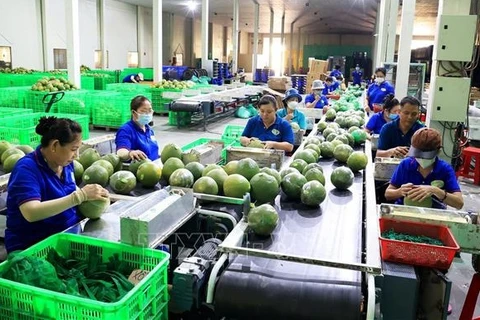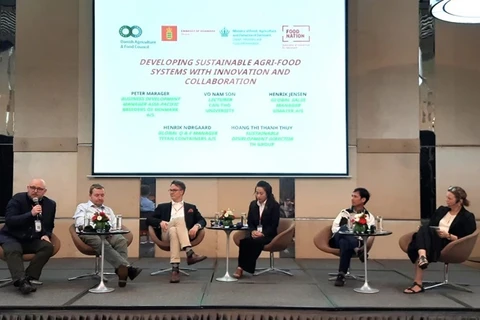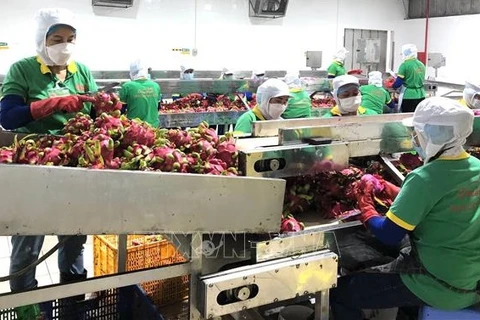 Vietnam’s agriculture sector has identified the need to respond promptly and enhance growth quality by applying ecological, organic, circular farming methods that results in low carbon emissions (Illustrative photo - Source: VNA)
Vietnam’s agriculture sector has identified the need to respond promptly and enhance growth quality by applying ecological, organic, circular farming methods that results in low carbon emissions (Illustrative photo - Source: VNA) Hanoi (VNA) – Bracing for the significant impact of climate change, Vietnam’s agriculture sector has identified the need to respond promptly and enhance growth quality by applying ecological, organic, circular farming methods that results in low carbon emissions.
Between 2019 and 2023, the United Nations Development Programme (UNDP) and the Ministry of Agriculture and Rural Development (MARD) have implemented a project called "Accelerating Private Sector Engagement in Climate-Resilient and Low-Emission Investment in Vietnam's Nationally Determined Contribution (NDC)".
The project is expected to assist dragon fruit farming to go green in the south-central province of Binh Thuan and shrimp production in the Mekong Delta province of Bac Lieu.
Nguyen Do Anh Tuan, Director of the MARD’s International Cooperation Department, stated that the ministry is currently completing procedures to participate in the Emirates Leaders Declaration on Resilient Food Systems, Sustainable Agriculture, and Climate Action. The document is expected to be approved at the 28th Conference of the Parties to the United Nations Framework Convention on Climate Change (COP28) in December this year.
The transformation of Vietnam's food system toward green, low-carbon, sustainable, and climate-adaptive orientations is imperative, contributing to the implementation of national agricultural and rural development strategies, action plans, and international commitments.
In recent years, the nation’s participation in international commitments on climate change has brought about a significant shift in the approach to agricultural production towards transparency, responsibility, and sustainability. They include commitments to achieve the net-zero emission goal by 2050 and a 30% reduction in methane emissions compared to 2020.
 The transformation of Vietnam's food system toward green, low-carbon, sustainable, and climate-adaptive orientations is imperative, contributing to the implementation of national agricultural and rural development strategies, action plans, and international commitments. (Illustrative photo - Source: VNA)
The transformation of Vietnam's food system toward green, low-carbon, sustainable, and climate-adaptive orientations is imperative, contributing to the implementation of national agricultural and rural development strategies, action plans, and international commitments. (Illustrative photo - Source: VNA) At the fourth session of the national steering committee for implementing Vietnam's commitments at COP26, Prime Minister Pham Minh Chinh stressed that green development, energy transition, and emission reduction are inevitable trends that cannot be reversed./.























